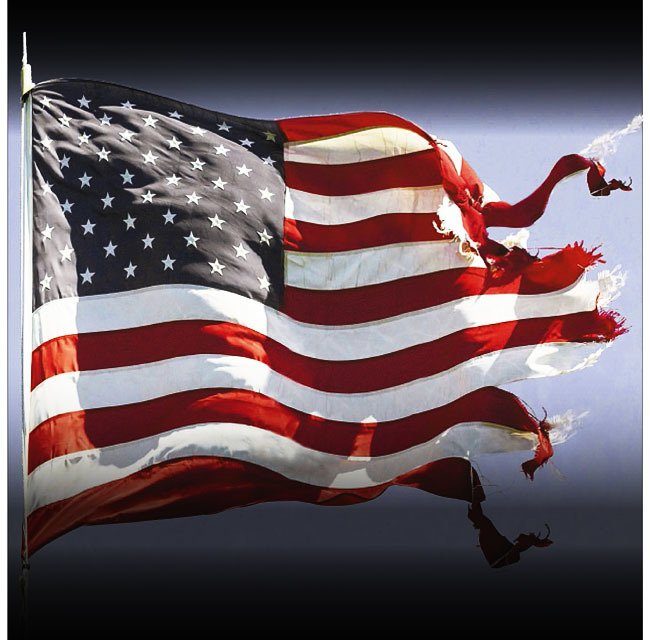As America struggles to absorb the week’s racial violence, some commentators are suggesting that our divided politics, led by two deeply flawed presidential candidates, could make things worse.
Many comparisons are being made to 1968 – the year of riots, protests, the Black Panthers and political upheaval – just as the Republican convention, and potential violence there, looms large.
At Politico, Shane Goldmacher and Annie Karni offered this observation:
This week’s outbreak of violence … laid bare a country deeply fractured along racial lines, and political leaders who are each relying on those divisions, now baked into the American political system … ‘You feel that there’s nobody that represents the whole,’ said Peter Hart, who has been a Democratic pollster for 50 years. ‘That Donald Trump has his constituency. That Hillary Clinton has her constituency. And they are talking to their part of the world, and neither is really talking about how you knit a country back together.’”
It’s nearly impossible to imagine, at this point in time, 122 days before the November election, that either of the candidates can emerge as a unifying figure. In fact, it’s much easier to envision the politics of the next four years as more divisive and anger-driven than the past eight years under President Obama.
The partisan polarization is evident in two contrasting online headlines. The Huffington Post: “NO RACE WAR HERE: Week Of Tragedy Not Evidence Of Looming Carnage.” The Drudge Report: “COPS TARGETS ACROSS AMERICA … RIOT WATCH ISSUED FOR LOUISIANA …PANTHERS TARGET ‘PIGS.'”
Overseas, the headlines about police shootings and police shot don’t make political distinctions: “America’s race hate nightmare” and “US reels from Dallas massacre.” Of course, the mass shooting of police officers had to happen in Dallas, didn’t it? Very near Dealey Plaza.
The Hill reports that a few comparatively minor events on Thursday continued to feed the narrative of an America on the edge:
As the nation was reeling from those events (in Dallas, Louisiana and Minnesota), there were also reports that a shooter in Tennessee who had killed one person earlier Thursday (with four people injured) appeared to have been motivated by anger against police officers. There was panic at another rally in Portland, Ore., Thursday evening when an onlooker apparently antagonistic to protestors marching against police violence drew a weapon.
The series of events has created a sense that the social fabric is torn — one point upon which people in a deeply polarized country agree.
In a heartfelt column, Frank Bruni of the New York Times pondered the future of a nation wounded by a political atmosphere that is fueled by “hasty conclusions, faulty connections … and willfully selective interpretation of events.” He contemplated what comes next:
There aren’t any ready answers for how to end this cycle of bloodshed, these heart-rending images from Louisiana and Minnesota and Texas of a country in desperate trouble, with so much pain to soothe, rage to exorcise and injustice to confront.
But we have choices about how we absorb what’s happened, about the rashness with which we point fingers. Making the right ones is crucial, and leaves us with real hope for figuring this out. Making the wrong ones puts that possibility ever further from reach.
So does a public debate that assigns us different tribes and warring interests, when almost all of us want the same thing: for the killing to cease and for every American to feel respected and safe.
As all of America reflects, Alexandra Petri, a Washington Post blogger, tried to put things in perspective:
You don’t have to pretend that America was better than it was to insist that it can be better than it is. To point out that America has a problem with race, or that our police forces are not living up to the ideals we set for them is not to say you hate America or hate the police. You’re saying that you really like America as a concept, that the ideas that animate this country – free speech, free assembly, being created equal — are wonderful ideas and worthy of belief. You’re saying that we need to stop America from malfunctioning, so we can give it to our kids. Even if the malfunction has been there as long as we have, you’re saying there’s hope.
Photo: New York Daily News Twitter page @NYDailyNews






